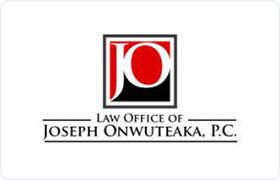Marathon Real Estate Other Lawyer, Texas
Sponsored Law Firm
-
 x
x

Click For More Info:
-
Law Office of Joseph Onwuteaka, P.C.
8323 Southwest Fwy Suite 650 Houston, TX 77074» view mapSlip & Fall Accident Fighting Fearlessly For Your Rights
I'm committed to providing experienced and tenacious legal representation. I will fight for the best possible outcome in your case & won't give up, even when things get tough.
800-960-3430
Includes: Commercial Leasing, Commercial Real Estate, Condominiums, Conveyancing, Housing & Urban Development, Premises Liability, Residential Real Estate, Title Insurance
Not enough matches for Marathon Real Estate Other lawyer.
Below are all Marathon Real Estate lawyers.
J. B. Love
Commercial Real Estate, Real Estate, Environmental Law Other, Business & Trade
Status: In Good Standing Licensed: 52 Years
J. Steven Houston
Juvenile Law, Construction, Administrative Law, Personal Injury
Status: In Good Standing Licensed: 46 Years
 Joseph Onwuteaka Houston, TX
Joseph Onwuteaka Houston, TX Practice AreasExpertise
Practice AreasExpertise
